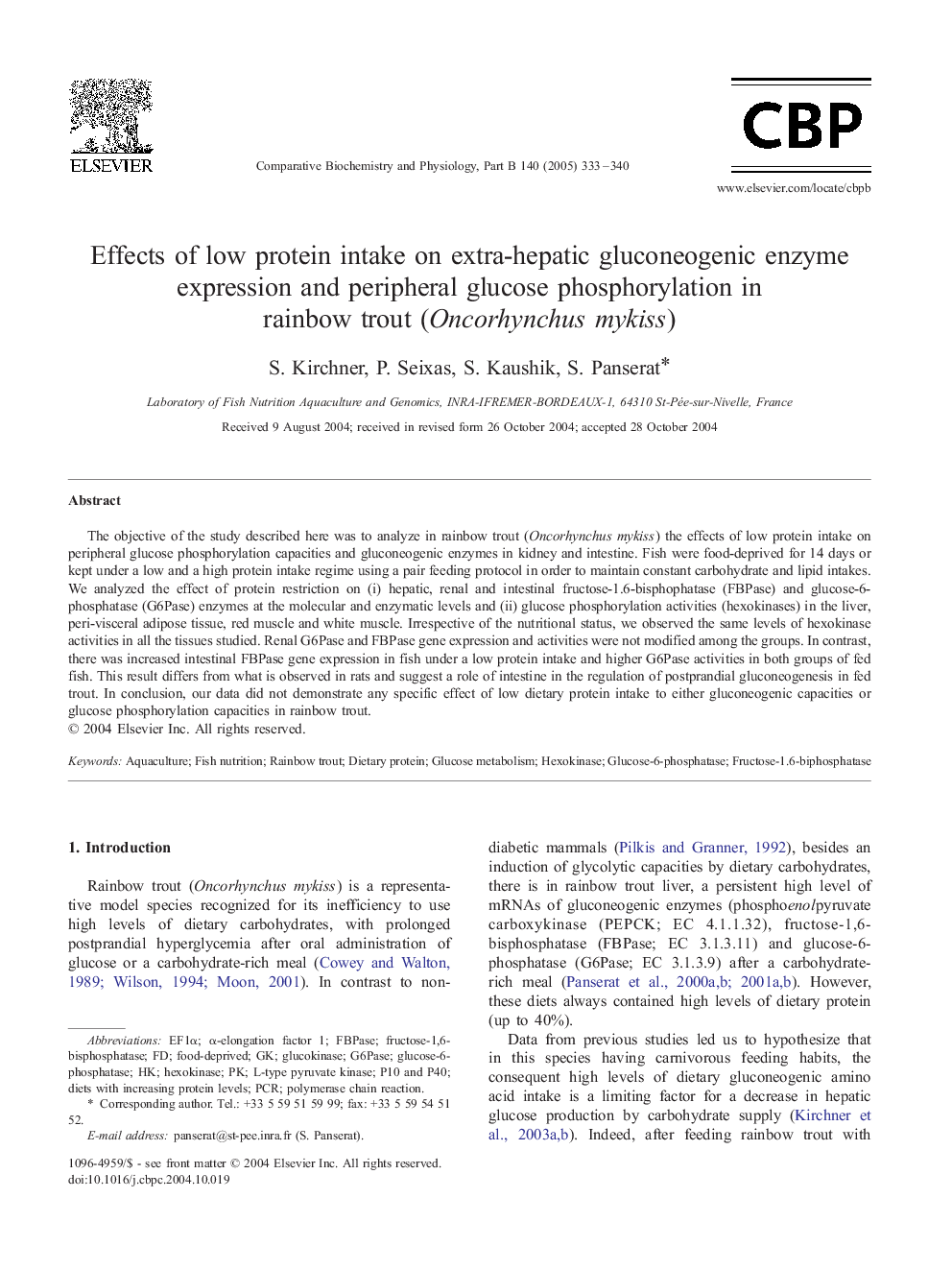| Article ID | Journal | Published Year | Pages | File Type |
|---|---|---|---|---|
| 10820705 | Comparative Biochemistry and Physiology Part B: Biochemistry and Molecular Biology | 2005 | 8 Pages |
Abstract
The objective of the study described here was to analyze in rainbow trout (Oncorhynchus mykiss) the effects of low protein intake on peripheral glucose phosphorylation capacities and gluconeogenic enzymes in kidney and intestine. Fish were food-deprived for 14 days or kept under a low and a high protein intake regime using a pair feeding protocol in order to maintain constant carbohydrate and lipid intakes. We analyzed the effect of protein restriction on (i) hepatic, renal and intestinal fructose-1.6-bisphophatase (FBPase) and glucose-6-phosphatase (G6Pase) enzymes at the molecular and enzymatic levels and (ii) glucose phosphorylation activities (hexokinases) in the liver, peri-visceral adipose tissue, red muscle and white muscle. Irrespective of the nutritional status, we observed the same levels of hexokinase activities in all the tissues studied. Renal G6Pase and FBPase gene expression and activities were not modified among the groups. In contrast, there was increased intestinal FBPase gene expression in fish under a low protein intake and higher G6Pase activities in both groups of fed fish. This result differs from what is observed in rats and suggest a role of intestine in the regulation of postprandial gluconeogenesis in fed trout. In conclusion, our data did not demonstrate any specific effect of low dietary protein intake to either gluconeogenic capacities or glucose phosphorylation capacities in rainbow trout.
Keywords
Related Topics
Life Sciences
Biochemistry, Genetics and Molecular Biology
Biochemistry
Authors
S. Kirchner, P. Seixas, S. Kaushik, S. Panserat,
